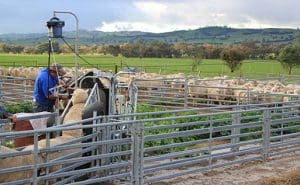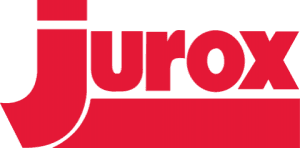AUSTRALIA’S competition regulator has outlined concerns with the proposed acquisition of the Australian family-owned veterinary pharmaceutical manufacturer Juroz by the American-listed animal health company Zoetis.
The Australian Competition and Consumer Commission has outlined its preliminary concerns in a statement of issues published today.
 Zoetis and Jurox develop, manufacture, and sell animal health products that detect, prevent, or treat health issues in companion and production animals.
Zoetis and Jurox develop, manufacture, and sell animal health products that detect, prevent, or treat health issues in companion and production animals.
Jurox manufactures three sheep drenches: the short acting, four-way combination Q-drench, the liquid Naphthalophos combination NAPfix and Pentamox, a mineralised oral drench that contains moxidectin. Zoetis produces the broad spectrum oral sheep drench Startect. (Editor’s note: an incorrect product name was originally used in this reference, since corrected)
ACCC deputy chair Mick Keogh said the ACCC has concerns that the acquisition will remove one of Zoetis’ closest competitors in the supply of three types of products that are used by farmers to treat or prevent bacterial infections in the teats of cows.
“We also have concerns that Zoetis will control two of the three sheep parasiticides that are most effective at managing parasiticide resistance,” he said.
 “In each of these markets, which are already highly concentrated, market feedback indicates that Zoetis and Jurox are two of the key players, and there are few alternative suppliers
“In each of these markets, which are already highly concentrated, market feedback indicates that Zoetis and Jurox are two of the key players, and there are few alternative suppliers
“Barriers to new entry appear to be high in these markets as suppliers need to invest significant time and capital to develop products and meet manufacturing, licensing, and registration requirements,” Mr Keogh said.
“The manufacturing process also involves expensive technology and equipment and a high degree of technical expertise.”
The ACCC is also considering whether the proposed acquisition may substantially lessen competition in five highly concentrated markets for the supply of various companion animal products to veterinarians, including opioid and non-opioid sedatives, antidotes for sedatives, corticosteroids and penicillin.
“We have received some market feedback that Zoetis and Jurox compete closely in each of these markets and that post-acquisition, the number of effective competitors in each market may be reduced to only two or three,” Mr Keogh said.
The ACCC’s investigation is also considering whether the proposed acquisition could provide Zoetis with the ability and incentive to engage in anti-competitive bundling, particularly given the importance of Jurox’s Alfaxan product, an injectable steroid anaesthetic for use in treating dogs and cats.
“Market feedback indicates that Alfaxan is a unique product with no comparable alternatives. We are investigating whether Zoetis could successfully prevent its rivals in companion animal products from competing effectively, by bundling the supply of Alfaxan with those companion animal products,” Mr Keogh said.
The ACCC invites submissions from interested parties in response to the statement of issues by 11 March.
The ACCC’s final decision is scheduled for 28 April. More information, including the statement of issues, is available on the public register: Zoetis Australia Research and Manufacturing Pty Ltd – Betrola Pty Ltd (including Jurox Pty Ltd)
Background
Zoetis is a public company listed on the New York Stock Exchange. Zoetis operates in global development, manufacturing and marketing of veterinary medicines and vaccines for companion animals and production animals.
Jurox is a private family-owned veterinary pharmaceutical company based in Australia. Jurox researches, develops, manufactures, and sells a range of over-the-counter products and veterinary medicines. Jurox’s products are marketed in over 20 countries globally and most are manufactured at Jurox’s plant in Rutherford, New South Wales.
At this stage, the four production animal markets where the ACCC considers the proposed acquisition is likely to substantially lessen competition are:
- Endoparasiticides and endectocides for sheep (sheep parasiticides)
- Intramammary antibiotics for lactating cows
- Intramammary antibiotics for dry cows
- Teat sealants for cows
Source: ACCC.

I think these issues are a concern of national security. Any company can then change hands and could be used as trade manipulation against Australia. This is one lesson we have learnt from COVID — too many products need to be imported. Maybe the Australian family-owned producer of these products needs supporting with business incentives and encouragement to stay in the industry.